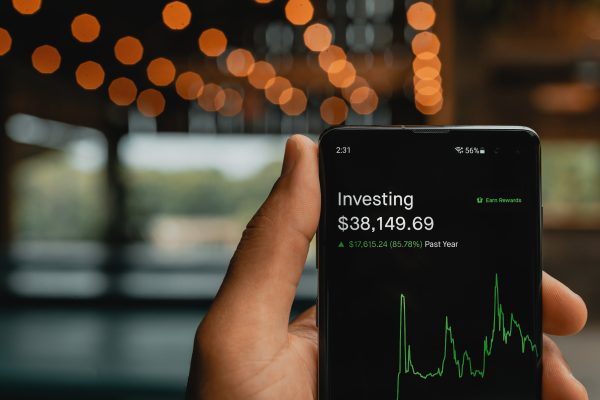There have been a spate of new entrants into the UK halal investment market, and the halal investment options in the USA and globally have significantly increased as well.
The driving force behind this uptick is that enabling technology and regulation has become increasingly user-friendly and a new generation of millennials are designing halal online investments that are going directly to the Muslim consumer rather than via financial advisors, banks, or other financial institutions.
At IFG, the job of our Halal Investment Comparison engine is to provide the most extensive and up-to-date list of halal companies to invest in globally – and we’ve been kept busy!
The following is a list of the latest halal investment companies or halal investment funds that have come to market (or rose to prominence) this year and we’ll aim to keep this list updated throughout the year. Hopefully it’ll generate plenty of interesting halal investment ideas for your portfolio.
(All of these investment options are accessible via our halal investment comparison engine.)
Qardus
Qardus is a just-launched sharia-compliant lender to small and medium-sized enterprises to help with their cashflow needs.
That’s a formal way of saying they provide short-term halal business loans, or halal business investments.
As an investor you provide the capital to lend to the business, and get paid as the business pays that money back.
The kinds of businesses Qardus go for are well-established, strong-revenue companies, typically in stable markets such as the medical or pharmaceutical industry.
The investment is structured using a commodity murabaha structure which is not the most preferred sharia structure, as it isn’t as pure a profit-share structure as is ideal. However, the model is very common across most of Islamic finance, and is approved by most leading scholars. Qardus to their credit have always said they’ll start with this but then look to see if they can offer other structures instead.
The kind of returns that are possible over a 1-2 year period are around the 8-12% annual return mark, which is very healthy. The short-term nature of the return is also appealing too, as there is a dearth of such products in the market right now.
The investment is ultimately one in which you can technically lose all of your investment though, so is high-risk high-reward. The chances for this happening are very low given the detailed credit checks that go into choosing a business, but you shouldn’t be going about putting your entire life savings into this investment.
Minted
Minted offers another halal way to invest your money – this time into gold.
Investing into gold is a halal investment of course, but there are a number of routes into investing in gold – some of which are not halal.
Minted allows you to sidestep those issues and invest regularly into gold via its website or app.
Given the recent surge in gold prices over the last few years, an investment in gold can prove lucrative, and if the same trend continued on, then you are looking at an annualised return of around 9% (that is having taken off Minted’s fees).
Of course a note of caution here – gold prices may not necessarily continue rising as steeply. But in that case you still hold a very safe asset that is not going to lose all its value overnight.
IFG.VC
IFG.VC is an angel syndicate that enables you to invest in early-stage startups. The IFG team itself runs the syndicate and every month we invest in 2-3 startups, typically investing around £250-£300k into each deal. We invest alongside leading UK venture capital funds and angel investors to enable access to the best deals.
The allure of startup investing is that you get access to a high-risk high-reward investment and can avail of very healthy tax breaks.
A report by the National Endowment for Science Technology and Arts showed that angel investing can generate annualised returns of 22% if one invests in a portfolio of startups. But the potential to make much more than that also exists if you end up with a future Facebook in your portfolio.
The downside is capped due to healthy tax incentives for UK investors. Nearly all IFG.VC investments are SEIS/EIS registered and these schemes allow UK taxpayers to claim back 50% and 30% of their invested amount respectively. So if you invest £10,000 into an SEIS-registered startup, you’ll claim back £5000 from your taxes paid that year. This derisks your investment by 50%.
The tax breaks also cover you for around 30% more in case the startup collapses within 3 years. So your total at risk capital is significantly reduced from £10k, to something like £2-3k.
As ever, a note of caution: most startups will fail and a handful will succeed massively, so its very important to invest in a portfolio of startups if you want to give yourself a realistic chance at making money. And if you’re not a UK taxpayer, then of course your full capital is at risk.
WealthSimple
Wealthsimple is a Canadian roboadvisor that has recently launched in the USA and UK. They offer a sharia-compliant portfolio which allows you to hold a set list of 50 stocks chosen from US stock market.
They are currently offering IFG readers $50 to Canadian investors who sign up, as well as offering zero management fees on the first $10k you invest with them to US investors.
The slight downsides here are, like any roboadvisor, you don’t get much flexibility to choose what you want, and you also don’t get any exposure to other asset classes (e.g. sukuk or gold) via the sharia portfolio as it is.
Sarwa
Sarwa is a Dubai-based roboadvisory firm that offers a halal portfolio to its investors if they choose that option. Sarwa is currently focused on Middle Eastern investors.
We have done a full review of the Sarwa offering here.
Arabesque
Arabesque is a very recent addition to our comparison engine and provide an interesting alternative flavour to stock investing as they are an algorithmic trading fund.
What this means is that they have certain algorithms and criteria unique to them that they use to pick stocks that they believe will do well in the future. They then apply this screen to halal companies to invest in, and the resultant portfolio is an algorithmically traded halal investment fund.
Their returns have been pretty solid at around 4.38% – which of course reflects the pounding stock markets have taken recently.
Final Thoughts
We are pleased to see that there are now a range of halal investment options emerging globally enabling the Muslim investor to really build out a diversified portfolio for the first time.
This is so important as it protects your wealth. Your grandma was right when she said don’t put all your eggs in one basket.
To educate yourself further around halal investing do check out our popular course: Halal Investing for Busy Professionals.
If you would like to us to review and add anything to our comparison engine, drop us a line via our contact us page!








